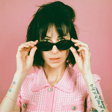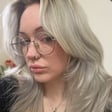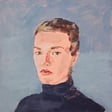
Ken Volante
Ken Volante has been asking questions of SRTN guests for awhile. In this special episode, Rachel Lally, podcast host of Six of One and Half a Dozen of the Other returns to ask the SRTN host the baffling questions he usually advantages himself of. Ken Volante is a labor activist.
Volante is originally from Pawtucket, RI which is known as the birthplace of the American Industrial Revolution. He has worked on behalf of working people for a quarter century and was involved in the beginning stages of The Wisconsin Revolt.
He holds degrees in English literature and Philosophy from The University of Rhode Island, an M.A. in Philosophy from Marquette University, a M.S. in Labor Studies from The University of Massachusetts - Amherst. He has worked as a grocery clerk, a bookstore clerk, a University Professor and a union representative. His creative endeavors include hosting the podcast 'Something (rather than nothing)', painting in an abstract style, writing short pieces and he has recently started doing short documentaries.
Volante is influenced by the following artists: Kathy Acker, Nikolai Gogol, Ludwig Wittgenstein, Friedrich Nietzsche, Karl Marx, Plato, Immanuel Kant, Jesus Christ, Stanley Kubrick, Polly Jean Harvey Andrei Tarkovsky, The Buddha, William Faulkner, David Lynch, Taylor Swift, The Cure, Neurosis, Neutral Milk Hotel, Weedeater. (((Remember, every list you write will be incomplete))) This episode is dedicated to my lovely parents Kenny Sr. and Patricia :-)



















